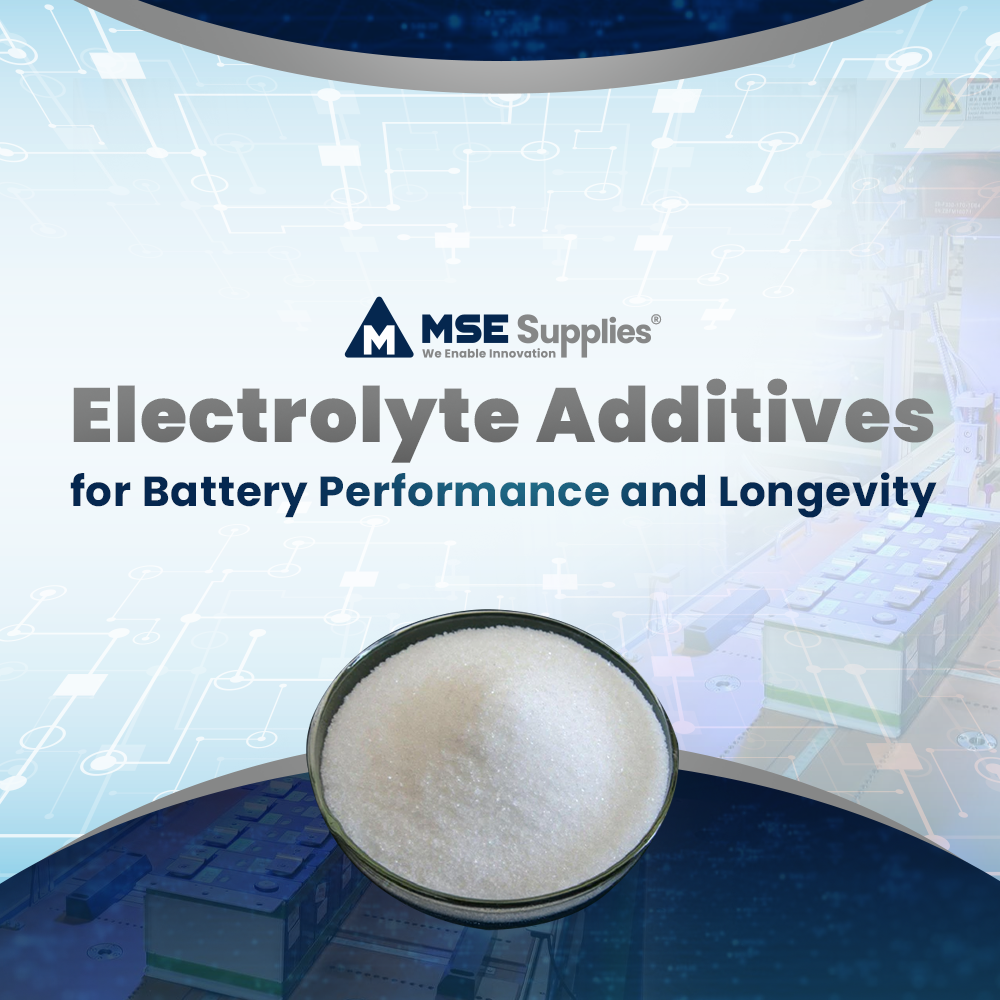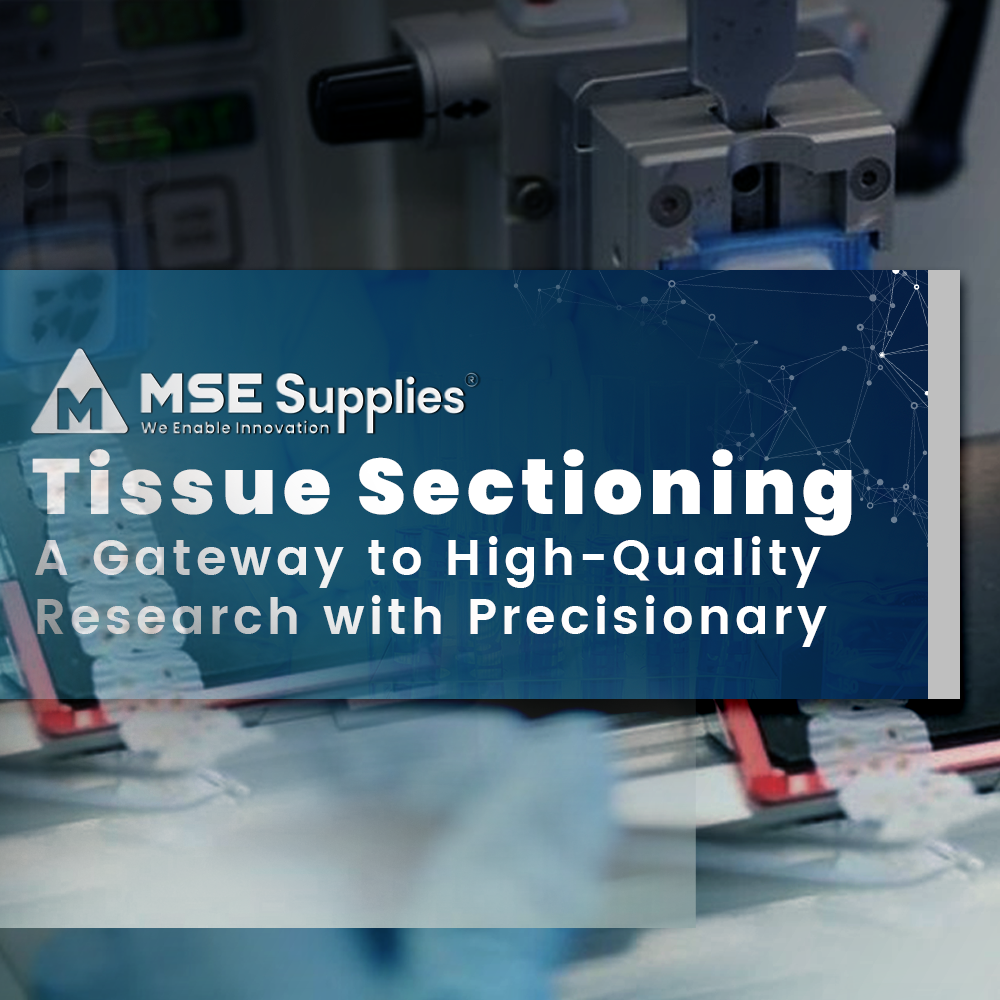High Purity Crucibles-Selection and Applications
Posted by Chia-yu Chen on
Crucibles are widely used in thermal and e-beam evaporation, crystal growth, and sintering applications. The two major factors of selecting crucibles are thermal and chemical compatibility. The temperature range and the degree of corrosion resistant vary based on the crucible materials. The common crucible materials include aluminum oxide, graphite, quartz, boron nitride, tungsten, zirconia etc.
MSE Supplies offers various crucibles and provide custom service. Below are some suggestions and guidelines for finding suitable crucibles
Evaporation deposition
Crucibles can be used in e-beam evaporation and thermal evaporation deposition. The materials to be evaporated are placed in a crucible. It requires high temperature to evaporate the materials. Below are some applications using different crucible materials.


|
Crucible |
||
|
Recommend Max working temperature |
1,600 °C |
400 °C (air), 2000 °C (non-oxidizing environment) |
|
Applications |
Sb, Au, Co, Cu, Ga, Ge |
Sb, B, In, MgO, Cu |


|
Crucible |
||
|
Recommend Max working temperature |
900 °C (air), 2100 °C (vacuum), 2000 °C (N2 or Ar) |
1200 °C |
|
Applications |
MoO3, Au, Sb, Al |
ZnSe, AgCl, CoCl, Cs |
Sintering
Sintering is the process of compacting solid materials by pressure or heat, which is in control of densification and grain growth. Sintering is used in many applications such as metallic powder sintering, ceramic sintering, plastic sintering etc. For example, one of the recent ceramic sintering is used in solid-state electrolyte LLZO densification and grain growth.



|
Crucible |
|||
|
Recommend Max working temperature |
2,200 °C |
1,600 °C |
1800 °C (air); 2100 °C (N2 or Vacuum)
|
|
Applications |
LLZO |
LLZO |
|
|
Note |
Showed higher Li content and relative density than using alumina crucible2 |
Al3+ contamination may affect Ga doping |
|
Crystal growth
Various crystal methods such as Czochralski (Cz) and Edge-Defined Film-Fed Growth (EFG) require using crucibles. The Cz crystal growth technology has been used for production of single crystals such as Si and Ge. The Cz method is to melt materials in a crucible and then insert a small seed crystal rod into the melt. The single crystal can be obtained while pulling the seed rod upwards.
MSE Supplies offers various crucibles that are commonly used for crystal growth.



|
crucible |
|||
|
Recommend Max working temperature |
1200 °C |
Melting point 3407°C |
1700 ℃ |
|
Applications |
Si single crystal |
Melting and casting
Melting and casting is the process of making objects by pouring molten materials into a mold. Different metals sometime require different types of crucibles for meting to prevent molten metals to attack crucible or contaminations from crucible. One of the common laboratory applications for melting and casting is XRF sample preparations. The ideal XRF analysis requires perfect flat surface. The fused bead method can provide a good homogeneous representation of the sample for solids. The fused beads are created by mixing samples that is finely powdered with a flux and heating to 900C-1200C in a platinum crucible. The sample is dissolved in the flux, and it is then cast into a mold.



|
Crucible |
|||
|
Recommend Max working temperature |
400 °C (air), 2000 °C (non-oxidizing environment) |
Melting point 3017°C; resistant to molten metals (Na, Li, Mg, K, Ag) at up to 1100°C |
Recommend use temperature: <900 °C. |
|
Application |
Al |
XRF sample preparation |
MSE Supplies (msesupplies.com) is a major global supplier of high purity crucibles. Both standard and customized products are available from MSE Supplies. If you need something not listed on our website, please email us at sales@msesupplies.com and we will prepare a quote for the customized products for you. If you have any questions, please email us at tech@msesupplies.com.
Reference
- Huang, Y.; Merkle, R.; Maier, J., Effects of NiO addition on sintering and proton uptake of Ba(Zr,Ce,Y)O3−δ. J. Mater. Chem. A 2021, 9, 14775-14785.
- Jiang, Y.; Zhou, Y.; Hu, Z.; Huang, Y.; Zhu, X., MgO or Al2O3 crucible: Which is better for the preparation of LLZ-based solid electrolytes? Ceramics International 2020, 46 (3), 3367-3373.
- S.Akselrod, M.; J.Bruni, F., Modern trends in crystal growth and new applications of sapphire. Journal of Crystal Growth 2012, 360, 134-145.
- Liu, B.; Edgar, J. H.; Gu, Z.; Zhuang, D.; Raghothamachar, B.; Dudley, M.; Sarua, A.; Kuball, M.; III, H. M. M., The Durability of Various Crucible Materials for Aluminum Nitride Crystal Growth by Sublimation. Materials Research Society Internet Journal of Nitride Semiconductor Research 2014, 9.
- Harris, D. C., A century of sapphire crystal growth: origin of the EFG method. Optical Materials and Structures Technologies IV 2009, 7425.
- Li, Y.; Sun, L.; Liu, H.; Wang, Y.; Liu, Z., Preparation of single-crystal metal substrates for the growth of high-quality two-dimensional materials. Inorg. Chem. Front 2021, 8, 182-200.
- Akhtar, N.; Akhtar, W.; Wu, S. J., Melting and casting of lithium containing aluminium alloys. International Journal of Cast Metals Research 2015, 28 (1).
Share this post
- Tags: Brands - MSE PRO, Industry - Agriculture, Industry - Industrial Process, Industry - Lithium Battery & Renewable Energy, Industry - Material Science, Industry - Medical, Industry - Pharmaceuticals, Products - High Purity Lab Crucibles

 (
(

